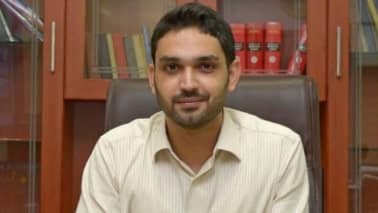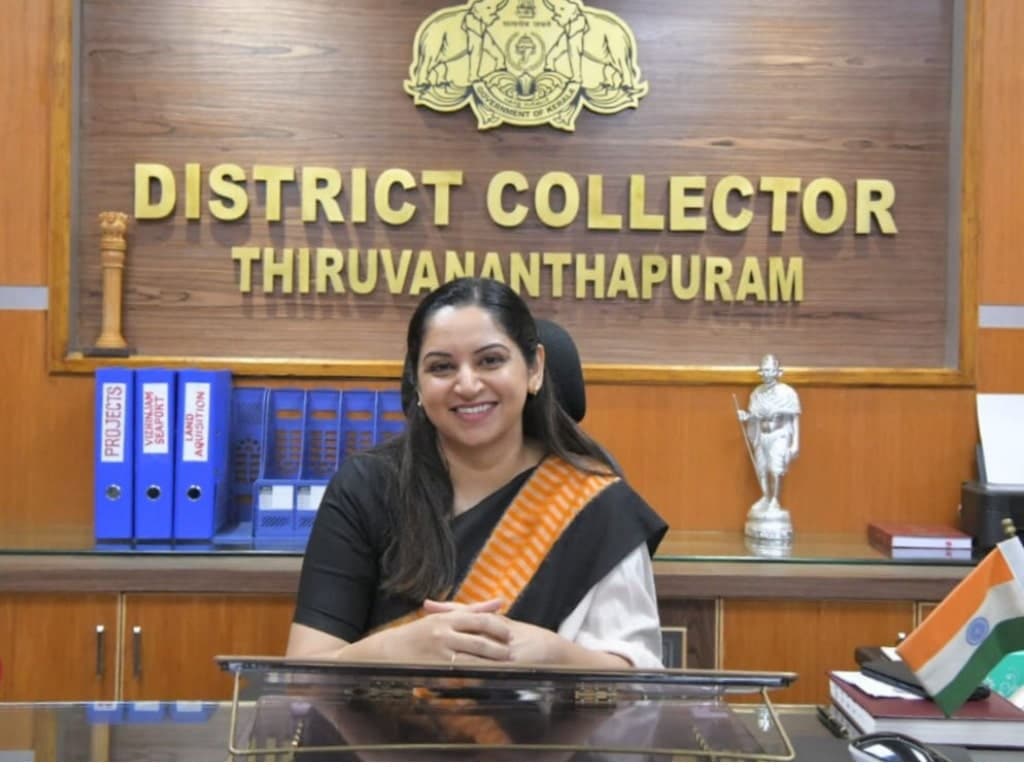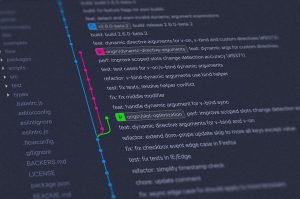How to Become a Collector Step by Step Guide
16 min read
How to become a collector is a question to all the passionate patriotic Indians? There is no doubt that our eyebrows are lifted high when we hear the word ‘Collector’. Who does not dream to be in such a prestigious position? And if you want to become a Collector keep reading the article till the end. Do not miss the tips and tricks shared in the end to crack the UPSC exam.
A collector is one of the most prestigious government service posts. Even words will be in short of the reputation, white-collar job, and respect that a Collector gets. And, who doesn’t wants all that? To throw more light, everyone has a dream career to become a Collector.
Want to know step-by-step how to become a Collector? Then, you have to read the article till the end. I have explained in simple steps how to become collector after 12th. So, let’s get started.
Who is a Collector
A Collector is a person who is appointed by the Central Government in each district. And, a Collector is responsible for the administration of that particular district. A Collector is the highest authority in that particular state. It is true that the Collector is appointed by the Central Government, but it is the State Government who supervises the working of the Collector.
The collector post is one of the posts in Indian Administrative Services(IAS). The main aim of the collector is to serve the public. A collector is the highest position of the government official in that particular state.
The Central Government is responsible to appoint a Collector for a particular district. Also, it is a state government that supervises the work of a collector.
How to Become a Collector
To become a Collector, you should qualify for the Civil Service Exam conducted by UPSC. The eligibility criteria for the UPSC exam are Indian, Bhutanese, or Nepali with a graduation degree in any field from a recognized university.

Now, it is crystal clear that to become a Collector you have to become an IAS officer first. To become an IAS Officer you must qualify for Civil Service Exam (CSE) conducted by Union Public Service Commission. To apply for the UPSC exam you must be eligible for some criteria. Do you want to know the eligibility criteria to become a Collector and apply for UPSC then read it below?
Eligibility Criteria
To become a Collector there is a set of eligibility criteria to apply for the exam. To apply for the exam you must fulfill the following eligibility criteria as listed below.
Nationality
- The person to become a collector should be a citizen of India
- The person can also be a citizen of the given country.
- Nepal
- Bhutan
- Tibet
Age Limit
To become a Collector you should at least be 21 years of age. The maximum age limit to apply for the post of a collector as of 1st August 2020, for the general category is 30 years, for OBC 33 years, and for SC/ST is 35 years.
The maximum age limit as of 1st August 2020-
| Category | Age Relaxation | Age Limit | Attempts |
| General | No | 32 years | 6 |
| OBC | 3 Years | 35 years | 9 |
| SC/ST | 5 Years | 37 years | No Limit |
Educational Qualification
For becoming a Collector you should be graduate in any field from a recognized university. The degree can be in any of the fields of his choice. Even the students appearing for the final year of graduation can apply for the UPSC exam.
Even the candidates with the educational backgrounds given below are qualified to become Collector.
- Even those candidates who have completed their education from distance education or through a correspondence education are eligible to apply for the post of Collector.
- Candidates can apply for the examination even in the final year of graduation.
- Candidates awaiting the results of the final year are also eligible for the Prelims Exam of the UPSC-CSE Exam. But for Mains Exam they have to produce proof of passing the exam.
- Candidates with technical degrees are also eligible to apply for this post.
- Also, a candidate with a professional qualification can apply for the exam.
- A student who has completed an S degree but is undergoing an internship program is also eligible to apply for the post.
- Candidates who have passed the ICAI, CWA, or ICSI Exam.
Required Skills
- Leadership Quality
- Stress Handling Skill
- Administrative Skills
- Good Communication & Interpersonal Skills
- Decision Making Skill
Selection Procedure for a Collector
Step 1: Pass the 12 the class
Step 2: Complete the graduation degree in any field of your choice
Step 3: Crack the UPSC – CSE exam which is conducted in 3 stages namely Preliminary Exam, Mains Exam, and Interview Process.
Step 4:Crack the UPSC exam and become an IAS officer.
Step 5: After 6 years of experience as an IAS Officer & 2-3 promotions, a candidate gets the designation of Collector.
Step 6: You can also become a Collector by qualifying for State Public Service Exam. After the good experience of several years and desired promotions, you become a Collector of the district.
How to fill IAS Exam form
If you want to apply for the UPSC exam and fill the IAS form then you just need to follow the simple steps given below.
Step 1. Visit the official website of UPSC – www.upsc.gov.in
Step 2. Now, click on the online application for various examinations
Step 3. Go to service civil services examination-Preliminary Exam
Step 4. Start registering with IAS Part-1
Step 5. Fill in all your mandatory Personal Details
Step 6. Choose the examination center
Step 7. Upload your passport size Photograph, Signature, and the Identity card
Step 8. Accept the Declaration by clicking on the button
Step 9. Once recheck the details
Step 10. Then click on Submit button
Step 11. Keep this printout with you
After you fill this form you have to crack the UPSC exam. But before that, you must know What is UPSC? So let us proceed by understanding more about UPSC.
2 Ways To Become A Collector
There are 2 ways by which you can become a Collector of a district.
- A. UPSC Exam
- B. State Civil Service Commission (SPSC)
A. What is UPSC
As I mentioned above to become a Collector you have to crack the UPSC exam and become an IAS officer. To apply for the UPSC exam you must acquire the details of the exam. Let us first have a quick overview of the exam and then understand what is UPSC exam, stages of the UPSC?
UPSC Exam Overview
| Exam | UPSC -CSE Exam |
| Authorized Body | Union Public Service Commission |
| Level | National |
| Exam Stages | 1. Preliminary 2. Mains 3. Interview |
| Eligibility Criteria | Nationality – Indian Age Limit – Between 21 to 32 years ( General Category) Age limit for OBC – 35 Years Age limit for ST/ST – 37 Years Educational Qualification – The candidate must have completed graduation in any field. |
| Number of Attempts | 6 Attempts (General Category) For OBC – 9 ST/SC – No limit |
To become Dm you need to crack the UPSC’s Civil Service Exam (CSE). UPSC is a National Level Exam. UPSC stands for Union Service Public Commission which is a central agency that conducts IAS Exam (Indian Administrative Service).
It is a pen-paper type. The total number of attempts a person is liable to give are attempts of 6 attempts. UPSC is an All India Exam to become DM, IFS, IAS, IPS, SDM & Collector.
The total number of vacancies after qualifying for this exam is approximately 800 and above. More than 8 lakhs candidates apply for this National Examination every year.
Online Application for the exam starts from February to March tentatively. Generally, UPSC conducts an exam once a year generally in the month of October. The result of the exam is declared in the month of November.
UPSC is an abbreviation for Union Public Services Commission. It is a centralized body in India which conducts the All India Civil Services Exam (CSE). All the important decisions related to CSE are taken by UPSC only. The UPSC is conducted into 3 stages. You can read UPSC Exam Detail here.
The three stages as listed below.
- Preliminary exam
- Mains exam
- Interview process
1. Preliminary exam
The preliminary exam has 2 papers that are conducted. Each paper has 200 marks a total of 400 marks. The question paper is in two languages namely English and Hindi. The duration of the paper is 2 hours each paper.
This examination carries a negative marking of the one-third penalty. That is for each wrong answer there is a negative marking of 0.33 marks. This paper has objective-type questions which comprise multiple-choice questions.
The Preliminary exam consists of two papers – Paper 1 & Paper 2. The details of both papers are listed below.
Preliminary Exam Details
| Paper | Type | Number of Questions |
Marks | Negative Marking |
Duration |
| Paper 1 | Objective | 100 | 200 | 0.33 | 2 hours |
| Paper 2 | Objective | 80 | 200 | 0.33 | 2 hours |
Syllabus for the Preliminary Exam
Paper 1. Current affairs
Here, you need to have very good general knowledge and good general studies of current events going on at the National and international levels. You need to read newspapers to gain general knowledge.
Paper 2. Civil Service Aptitude Test (CSAT)
This paper comprises competencies related to comprehension, interpersonal, and communication skills. Hereby analytical ability, logical reasoning, and mental ability are also tested. Also, there are questions related to decision-making and problem-solving.
The syllabus for both the papers of the Preliminary exam is listed below.
| Paper 1 | Indian History General Science Indian Politics Current Events General Issues Indian Geography World Geography Social Development Economic Development |
| Paper 2 | Communicational Skills Intrapersonal Skills English Skills English Comprehension Language skill that is chosen by the candidate Decision-making skills Problem-solving ability Mental Ability Basic Numeracy |
2. Mains exam
After qualifying for the preliminary exam the candidates are eligible for the second round that is the mains exam. Generally, Mains Exams are conducted in the month of January. After the mains exam, the candidate will be liable for the process of the interview. Mains Exam has the descriptive type of questions.
The Mains exam includes a total of 9 papers that are listed below. More details are given below.
Mains Exam Details
The total marks for this examination are 1750 marks. Though the Mains exam consists of 9 papers. Out of these 9 papers, only 7 papers will be taken for the merit ranking. For the remaining two papers the candidate should obtain the minimum marks as set by UPSC. This exam includes a total of 9 papers as follows.
| Paper | Syllabus | Marks | Duration |
| Essay | Essay on any topic | 250 | 3 hours |
| General studies 1 | Indian Heritage, Culture, Geography |
250 | 3 hours |
| General studies 2 | Constitution, Governance, Social Justice |
250 | 3 hours |
| General studies 3 | Technology, Environment, Disaster Management |
250 | 3 hours |
| General studies 4 | Ethics, Integrity, and Aptitude |
250 | 3 hours |
| Optional subject 1 | Any | 250 | 3 hours |
| Optional subject 2 | Any | 250 | 3 hours |
| Paper 1 | Indian Language (Anyone of the language) |
300 | 3 hours |
| Paper 2 | English language | 300 | 3 hours |
Syllabus for the Mains Exam
Essay
To write an essay on any one topic. You can choose the option of your choice from the given options.
General Studies 1 – Indian Heritage & Culture
- Indian Culture
- Modern Indian History
- History of the world
- Society
- Geography
- Events, Forms, and Effects on Society
General Studies 2 – Indian Constitution & Indian Politics
- The Constitution Of India
- Amendment Procedure
- The Political System
- Central Government And Administration
- The Electoral Process
- Administrative Law
- Central And State Government Privileges
- Public Services
- Social Welfare And Social Legislation
- Control over Public Expenditure
General Studies 2 – Science & Technology
- Energy
- Computer and Information Technology
- Biotechnology
- Disaster Management
- Nuclear Policy Of India
- Space Technology
- Environment
- Security
- Agriculture
- Economy
General Studies 3 – Ethics & Human Interface
- Ethics and Human Interface
- Aptitude
- Attitude
- Integrity
- Emotional Intelligence
- Public Service Values And Ethics in Public Administration
- Probity in Governance
Optional Subjects
There are 2 Papers on Optional Subjects. The candidate is supposed to choose any 1 optional subject out of 48 total options. The 2 papers are combined and are of a total of 500 marks.
You need to be very careful while choosing your optional subject. You must know which optional subject will work best for you.
The candidates can choose their Optional Paper 1 & Paper 2 from the subjects listed below.
- Law
- Physics
- Statistics
- Philosophy
- Zoology
- Sociology
- Public Administration
- Political Science
- Medical Science
- Management
- Mechanical Engineering
- Civil Engineering
- Electrical Engineering
- Economics
- History
- Geography
- Mathematics
- Geology
- Commerce
- Agriculture
- Animal Husbandry
- Chemistry
- Botany
- Anthropology
English & Language Papers
The pattern of both papers is almost the same in nature. The English language is a compulsory language. Whereas, other languages can be chosen from a list of languages.
The pattern of the paper is as follows.
- Essay – 100 Marks
- Comprehension – 60 Marks
- Precis Writing – 60 Marks
- Translation from English – 20 Marks
- Translation from Chosen Language – 20 Marks
- Grammar – 40 Marks
Please Note: The candidate is free to choose his writing language as English, Hindi, or any other language listed in the Indian Constitution.
3. Interview
After cracking the Mains Exam you are qualified for the Interview Process. Approximately 400-450 candidates reach this round. When you qualify for the interview round you become IAS Officer. During the review subject knowledge, personal skills, as well as Mental Ability, is tested.
In the interview, only academics knowledge is not tested but the personality test is all about how much the candidate is alert and all aware of the events happening around. The candidates are first given training and then posted as a Collector, according to the requirements of a particular district.
Syllabus for Interview
- This is basically a question and answers session
- This exam is 275 marks.
- The interview is nothing but a Personality Test.
- Even current affairs and General knowledge questions can be asked as Questions for the Collector’s Interview.
Books & Study Material
To crack the UPSC examination and become an IAS officer you need to have acquired General Knowledge. For this, you need to keep on reading the newspaper on a daily basis also without fail.
The Hindu Newspaper, Jagran Josh, Economic Times, & Indian Express is something I would suggest to enhance your general knowledge and current affairs. Other lists of books that I would suggest are as follows.
- Indian Polity For Civil Service Examination -Indian Polity by Laxmikanth
- Indian Year Book
- Indian Economy by Ramesh Singh
- Oxford Geography Atlas
- A Brief History of Modern India
- Indian Art And Culture
- Fundamentals of Geography(NCERT)
- Concise History of Modern India by Sujata Menon
- Facets of Indian Culture
- The Constitution of India by P.M Bakshi
- Indian Economy by Mishra and Puri
If you are a candidate who cannot afford UPSC books then you can search the topics on google and simply read them all. I have already shared the details of the syllabus above.
If you want to buy these books from Amazon then click on the links below.
B. What is SPSC
SPSC stands for State Public Service Commission. It is a Civil Service Exam that is conducted by each particular state in India. For example, in Maharashtra, the State Civil Service Exam is known as MPSC Exam. Have a check on what is the name of your state civil service exam.
As far as the syllabus of this exam is concerned the pattern and syllabus of the exam are very similar to the UPSC exam. The only addition to the syllabus is the state history. The total number of papers in this exam is less than that of the UPSC Exam.
It takes several years and various promotions to become a Collector through the State Civil Service exam. The duration differs according to the state. In Maharashtra, it takes 20-22 years whereas in another state it takes 10-15 years.
Role & Responsibilities of a Collector
A collector plays a vital role in a District. He has various roles and responsibilities to discharge. They are as listed below.
- To look forward to the administration of the whole district.
- Maintenance of law and order in the district.
- He/She is also responsible for collecting the land revenue of the district.
- Plays an important role in disaster management and crisis management in case of any crisis. He/She is the one who is responsible to take important decision related to natural calamities or man made calamities.
- To look forward tax revenue maintenance of the district
- To throw more light he is also the person who also looks after all the election processes for Parliament, State Legislature, and Local Bodies.
- He/She serves the district as Chief Development Officer(CDO)
- Again, he/she acts as a Grievance Redressal Officer of a district.
- A Collector is a District Head of Executive Magistrate.
- Also, he/she acts as a Special Officer for the laws related to Arms And Explosives in that particular district.
- He/She strives hard for the rural development and development of Human Resources.
- A Collector is solely responsible for the supply of food, Civic amenities, and overall development of a district.
- A Collector is also responsible for the distribution of an Agricultural Loan.
- To collect all the pending due of government is also a vital role of a Collector.
- He collects all the statistics of that particular district.
- To implement the various land reforms.
- To look after the welfare of farmers.
- To maintain and manage all the government property.
Salary Of a Collector
Many students are eager to know when you become a Collector what is your salary? The salary of a Collector ranges from Rs. 94,174 to Rs. 1,72,692/-. This amount is without the benefits and perks. The collector along with a good salary also enjoys a lot of benefits. The salary of a collector increases with experience. You can get the details of the Salary of IAS here.
To talk about other benefits that a Collector gets along with the salary is the dearness allowance (DA), House Rent Allowance, Medical Allowance, Traveling Allowance, Security, Bills, Vacation, and Pension.
The salary also comprises the basic pay, allowances, and various other perks by which a Collector is benefited. Let us see a few of the benefits. They are as listed below.
Dearness Allowance (DA)
It is due to the DA that the salary of an IAS is increased by the government after intervals. The dearness allowance for an IAS is revised on a half-yearly basis. DA is also affected by the inflation rate. But generally, it increases every year.
House Rent Allowance (HRA)
The house rent allowance difference from city to city. The housing flowers generally range from 18 to 24% of the IAS Officer’s Basic Pay.
Medical Allowance
The benefits that an IAS officer enjoys also comprise the medical allowance. An IAS officer can reimburse that medical allowance at the time of the medical treatment.
Travelling Allowance (TA)
According to the grade of the IAS officer and their posting, he/ she is assigned a vehicle. Generally, in a rural area, the officer gets an ambassador car. Whereas in city areas the officers get luxury cars In Innova, Fortuner, etc.
Security
An IAS officer you are not permitted to carry of their own by government. But for the security of IAS officers, the government allots bodyguards to the IAS officer and their families.
Bills
An Officer might get the electricity, gas, water, and phone bill for free. Sometimes it is not free then the officer may get it at a very subsidized rate.
Vacation
An IAS Officer is allotted a guest house or a bungalow during his/her business or non-business trips.
Pension
An IAS officer Android a good hand full amount of pension a lot of retirement benefits.
Also, Read
Tips to Crack Collector’s Entrance Exam (UPSC)
1. Early Preparation
UPSC – CSE is one of the toughest competitive exams. It is not going to be an easy task to crack it. Simultaneously many candidates also apply for vacancies. So if you want to come out with flying colors in this competitive exam you should start your preparation early.
Last moment studies are not at all going to help you. Start your UPSE-CSE Exam Preparation after the 12th itself. You will get the total span of the graduation period to prepare for the examination.
2. Attention on all the subjects
Give overall attention to all the subjects. Focus more on the subject which you find difficult. Also, pay more attention to the technical subjects.
3. Solve all your doubts
Try solving all your doubts at that particular time only. Do not proceed further by keeping a doubt. Get a solution to your doubts and issues.
4. Constant Reading
If you want to crack MPSC Exam it is mandatory for you to develop a reading habit. Read more newspapers. Surely, this will enhance your General Knowledge and Current Affairs.
5. Time Management
Proper time management and scheduled time table is a perfect key solution to crack this examination. Balance time management with all the subjects and distribute the time evenly.
6. Smart Study with proper guidance
The prior most step before starting the preparation is to understand the examination pattern and syllabus. Study accordingly is a smart study.
7.Previous Year UPSC Paper Solving
After the preparation revision is a must. Yes, I do agree but with revision previous year paper solving is also a must. You will understand the paper pattern and will be used to and prepared for the examination.
UPSC Previous Year Question Paper-Click Here
Also, Read
How to Become a Collector FAQ’s
When Does an IAS become A Collector
After cracking the UPSC – CSE exam the candidate becomes an IAS officer. An IAS Officer after 6 years of service and 2 – 3 promotions becomes the Collector of a district.
How to Become Collector after 12th?
To become a Collector you need to complete your graduation and then only apply for UPSC and become an IAS officer. But you can start the preparation for the UPSC exam after the 12th onward. Due to this, you will get ample time to prepare for the exam. You can also join the coaching for UPSC preparation.
Can an Deputy Collector become a Collector?
An officer selected by the State Civil Service exam who is promoted as an IAS Officer becomes a Collector after 20 years of service.
For example, a Deputy Collector is recruited by MPCS – A State Civil Services Exam in Maharashtra. After various promotions, a Deputy Collector becomes an IAS officer. After serving as an IAS officer and 20 years of service officer is promoted to a Collector.
How to become a Collector without UPSC?
Without the UPSC exam, you can also become a Collector. For that, you must apply for State Public Service Commission Exam (SPSC). After cracking the SPSC exam you become a Deputy Collector. With relevant experience and after certain promotions you are eligible to become a Collector from Deputy Collector.
Conclusion
To sum up, this away all about step by step process for how to become a Collector. I hope all your related queries regarding eligibility criteria, age limit, syllabus, and preparation are now sorted.
Sharing is Caring – If you have liked the article do not forget to share it!






